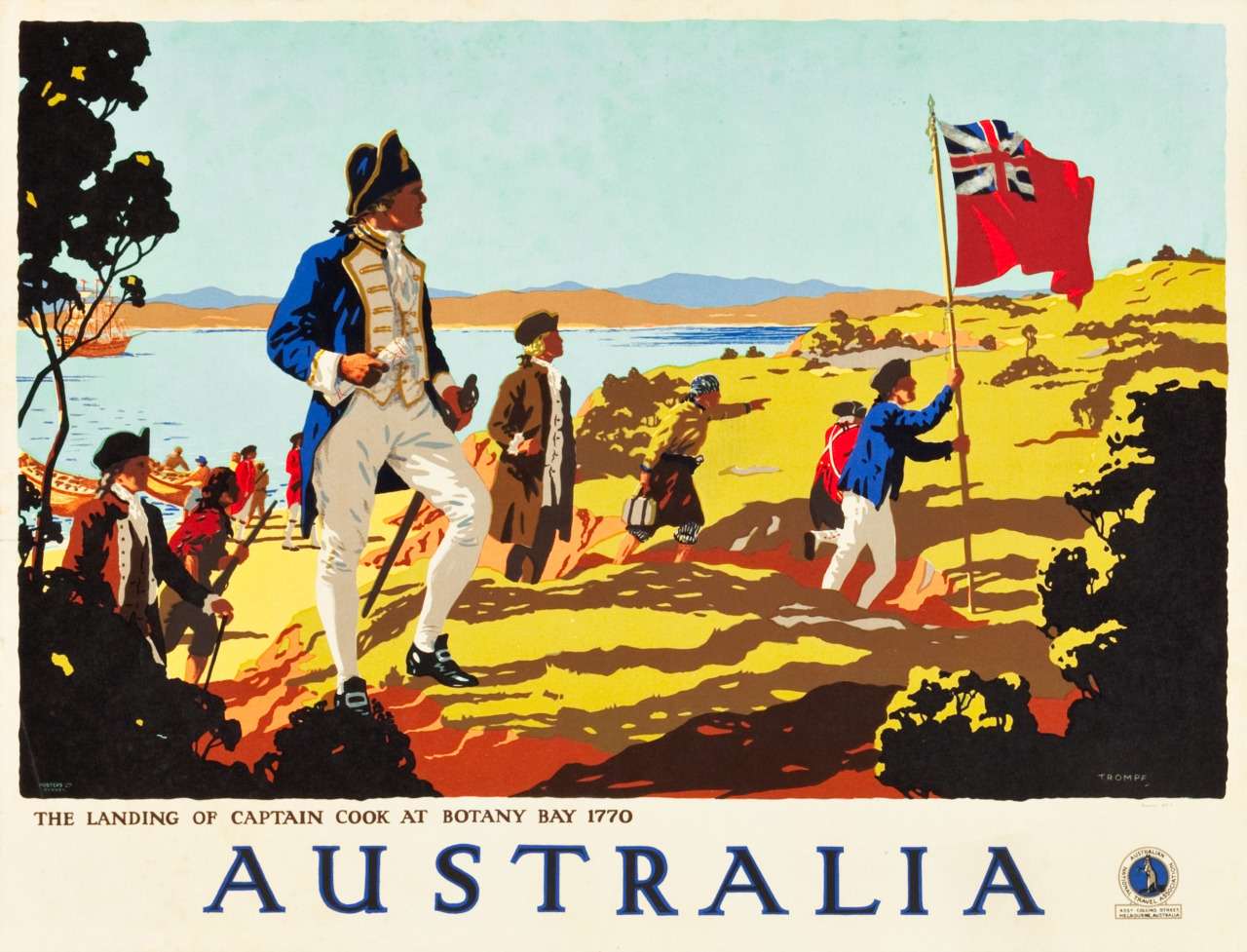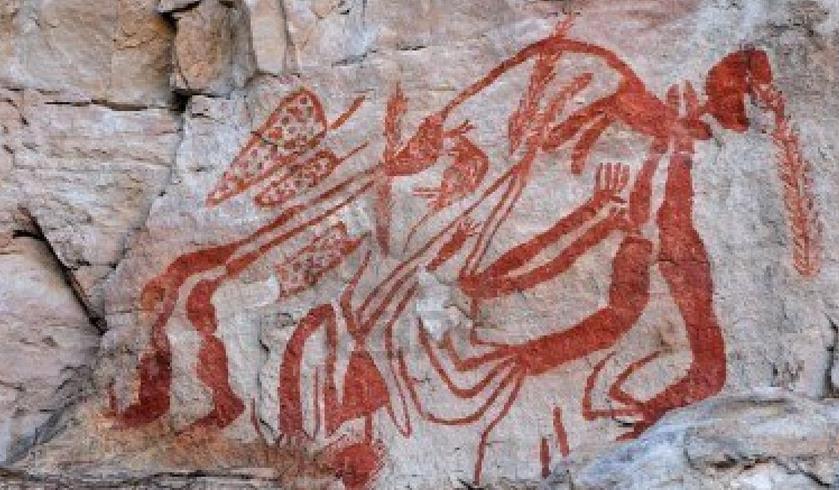Unraveling the Mystery: The Intriguing Origins of the Name "Australia"
Unraveling the Mystery: The Intriguing Origins of the Name "Australia"

The vast and diverse landmass we know as Australia has a captivating history, and its name, like its people and culture, is steeped in intrigue. While the continent itself has been inhabited for tens of thousands of years by Indigenous Australians, the name "Australia" is a relatively recent addition, a product of European exploration and mapping.
This article delves into the fascinating journey of how Australia got its name, exploring the key figures, historical events, and linguistic influences that shaped its identity. We’ll uncover the stories behind the various proposed origins, from the ancient Greek concept of "terra australis" to the Dutch "Terra Australis Incognita" and the eventual adoption of "Australia."
Related Articles: Unraveling the Mystery: The Intriguing Origins of the Name "Australia"
- The Dreaming: Unraveling The Timeless Tapestry Of Aboriginal Belief
- Australia’s Linguistic Tapestry: A Diverse Symphony Of Languages In 2023
- Dot Painting Kangaroos: A Journey Through Indigenous Art And Symbolism
- Unraveling The Tapestry Of Aboriginal Surnames: A Journey Through History And Identity
- The Didgeridoo: Australia’s Iconic National Instrument
Early Conceptions: The "Terra Australis" Myth
The idea of a vast southern landmass, a "Terra Australis" (Latin for "Southern Land"), dates back to ancient Greek times. Aristotle, the renowned philosopher, proposed its existence in the 4th century BC. This concept was fueled by the belief in a balanced world, with a northern landmass (Europe, Asia, and Africa) requiring a corresponding southern counterpart to maintain equilibrium.
While the ancient Greeks lacked the technology to prove its existence, the concept of "Terra Australis" persisted throughout the Middle Ages, appearing in maps and influencing the thinking of explorers. It became a mythical land, a place of mystery and intrigue, shrouded in speculation and legend.
Dutch Explorations: Unveiling the Southern Continent
The first Europeans to actually set foot on Australian soil were the Dutch, beginning with Willem Janszoon in 1606. These early voyages, however, were primarily focused on trade routes to the East Indies, and the land encountered remained largely unexplored.
In 1642, the Dutch explorer Abel Janszoon Tasman made a significant discovery. He charted the western coast of Tasmania, which he initially called "Van Diemen’s Land," and then sailed south, discovering the island of New Zealand. While he didn’t fully realize the extent of the land he’d encountered, his voyages solidified the notion of a large southern continent.
The "Terra Australis Incognita": A Land of Mystery
The Dutch continued to explore the coasts of Australia, naming various locations, but they never ventured far inland. They referred to the land as "Terra Australis Incognita" – "Unknown Southern Land," acknowledging its vastness and the mystery it held.
This period of Dutch exploration, while significant, was largely overshadowed by the rise of British maritime power. The British, driven by their own imperial ambitions, began to take a keen interest in the vast southern continent.
James Cook and the British Claim
In 1770, the British explorer Captain James Cook arrived on the east coast of Australia, claiming it for the British Crown. Cook’s voyages were meticulously documented, meticulously mapping the coastline and providing detailed accounts of the land and its inhabitants. His explorations sparked intense interest in the region, paving the way for British colonization.
The Birth of "Australia": A New Name for a New Era
The name "Australia" itself is attributed to Matthew Flinders, a British explorer who meticulously charted the Australian coastline between 1798 and 1803. Flinders, inspired by the ancient Greek concept of "Terra Australis," proposed the name "Australia" in his book, "A Voyage to Terra Australis," published in 1814.
Flinders’ choice of name was influenced by several factors. He wanted to distinguish the land from the Dutch "Terra Australis Incognita," emphasizing its newfound understanding and significance. He also desired a name that reflected the continent’s vastness and its distinct identity.
While the name "Australia" was initially met with some resistance, it gradually gained traction. By the 1820s, it was increasingly used in official documents and publications, eventually becoming the accepted name for the continent.
The Impact of the Name "Australia": A Legacy of Identity
The adoption of the name "Australia" marked a significant turning point in the continent’s history. It served as a symbol of British dominance and the beginning of a new era of colonization. The name, however, also carried a sense of discovery and exploration, reflecting the ongoing fascination with the land and its potential.
The name "Australia" has evolved over time, reflecting the changing demographics and cultural landscape of the continent. Today, it is a name that evokes a sense of pride, resilience, and diversity. It represents a land of immense natural beauty, rich cultural heritage, and a vibrant and dynamic society.

Beyond the Name: The Importance of Indigenous History
It’s crucial to acknowledge that the history of Australia goes far beyond the arrival of Europeans. For tens of thousands of years, Indigenous Australians have inhabited and thrived on this land, developing a complex and rich culture. Their stories, traditions, and languages are integral to understanding the true history of Australia.
While the name "Australia" may have been bestowed by Europeans, it is the Indigenous people who have truly shaped the land and its identity. Their history, culture, and resilience are essential parts of the Australian narrative, and their stories must be heard and honored.
Conclusion: A Name Embracing a Complex Past
The story of how Australia got its name is a testament to the intertwined histories of exploration, colonization, and cultural exchange. From the ancient Greek concept of "Terra Australis" to the Dutch "Terra Australis Incognita" and the eventual adoption of "Australia," the name has evolved alongside the continent’s understanding and perception.
While the name "Australia" may have originated from European exploration, it is a name that has come to encompass the diverse and vibrant society that exists today. It is a name that reflects the rich history of the land, the resilience of its people, and the promise of a future where all voices are heard and respected.
FAQ: The Origins of "Australia"
Q: What is the origin of the name "Australia"?
A: The name "Australia" is attributed to Matthew Flinders, a British explorer who charted the Australian coastline between 1798 and 1803. He proposed the name in his book, "A Voyage to Terra Australis," published in 1814.
Q: Why did Flinders choose the name "Australia"?
A: Flinders wanted a name that reflected the continent’s vastness and distinct identity, while also distinguishing it from the Dutch "Terra Australis Incognita."
Q: Did the Indigenous Australians have a name for their land before the Europeans arrived?
A: Yes, Indigenous Australians had numerous names for their land, depending on the specific region and language group. However, these names were not used by Europeans during the period of colonization.
Q: What role did the Dutch play in the naming of Australia?
A: The Dutch were the first Europeans to explore and map parts of Australia, naming various locations. They referred to the land as "Terra Australis Incognita," acknowledging its vastness and mystery.
Q: What is the significance of the name "Australia" today?
A: The name "Australia" today represents a land of immense natural beauty, rich cultural heritage, and a vibrant and dynamic society. It is a name that evokes a sense of pride, resilience, and diversity.
Q: How can we learn more about the Indigenous history of Australia?
A: There are numerous resources available to learn more about the history and culture of Indigenous Australians. These include museums, historical sites, documentaries, books, and websites dedicated to Indigenous history and culture.

Closure
Thus, we hope this article has provided valuable insights into Unraveling the Mystery: The Intriguing Origins of the Name "Australia". We hope you find this article informative and beneficial. See you in our next article!




